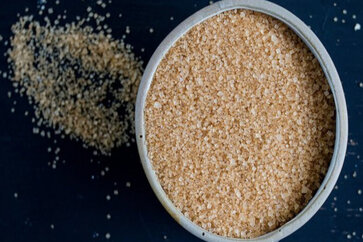Top Ayurvedic Medicine For Thyroid Treatment
 Hypothyroidism is a disorder that is caused due to inadequate production of thyroid hormone in the body compared to the normal body requirements.
Hypothyroidism is a disorder that is caused due to inadequate production of thyroid hormone in the body compared to the normal body requirements.
This condition of the thyroid gland is called ‘underactive’. Insufficient thyroid hormone results in slow overall body metabolism. It has been found that Hypothyroidism affects both men and women, but in women, it is eight times more.
People of all ages can get affected by this disorder. It has been studied that Persons with hypothyroidism are more susceptible to heart disease, cancers, and other infections.
Severe hypothyroidism in adults is called ‘Myxedema’ and in children, it is known as “cretinism”.
Ayurvedic View On Hypothyroidism
Ayurvedic way of treatment for hypothyroidism is a natural way to cure the disease. The definition of Hypothyroidism is the same in Ayurveda and modern medicine.
Its condition arises from the thyroid gland which leads to the production of a small amount of thyroid hormone. It is mainly caused by iodine deficiency or the inability of the thyroid gland to function properly due to a malfunction of the pituitary gland.
The discovery of the disease can be time-consuming since its symptoms are not dangerous and can be easily ignored by many people. Symptoms such as hair loss, fatigue, depression, dry skin, and cold cannot suggest to a patient that the disease is at hand.
Ayurveda, which is the method of natural, healing, has its origins in the Vedic culture of India that can be used to treat hypothyroidism.
It was described by Charaka, an Ayurveda doctor, as a disease that does not attack those people who eat adequate amounts of green gram, old rice, sugarcane juice, milk, barley, cucumber, Bengal gram, and other dairy products.
Ayurveda discourages the consumption of bitter or sour substances as these diseases will worsen. However, hypothyroidisms are a treatable disorder and there are various simple natural treatment options available that are effective too.
There are plenty of Ayurvedic herbs that are prescribed for hypothyroidism. They serve as a regulator of the thyroid hormone and restore operation. Most of these herbs are under research and many of them have proved effective in the treatment of thyroid disorders.
Ayurvedic herbs are free from side effects and are easily absorbed by the body which is the reason it is widely accepted worldwide.
It can be used as a daily health care supplement and is easily found in kitchens and in herb shops in the form of Ayurvedic tablets, powders, pills, capsules, juices, and extracts. The following are some of the popular Ayurvedic herbs that are useful to treat hypothyroidism.
Herbs That Are Useful To Treat Hypothyroidism
1. Guggulu (Commiphora Mukul)
Guggulu is an herb that is commonly used in Ayurveda for its ability to burn calories and other wonderful benefits for the body.
It is an herb recommended for weight reduction as obesity is one of the symptoms that are responsible for hypothyroidism. Guggulu is an ideal herb for the treatment of this condition and is easily available in form of tablets, pills, and capsules.
2. Kaanchanara (Bauhinia Variegata)
This herb is also known as ebony and is very effective to cure any type of thyroid problem. Kaanchanara is available in form of a pill and tablet from reputable health stores worldwide.
Punarnava herbs fall into the class of diuretics and are ideal for treating inflammation and swelling throughout the body.
As swelling and numbness throughout the body are some of the symptoms of hypothyroidism. This herb is an effective remedy for the condition and is also a good tonic that can boost your overall health.
Barnes Basal Test To Check Thyroid Function
There is a simple test to check thyroid function which is known as the “Barnes Basal Temperature test”. The way is very simple to avoid drinking alcohol those nights now before bed shakes the thermometer and places it near to you.
The next morning, place the thermometer firmly in the armpit and rest for 10 minutes. The normal reading may be off 97.8 F (37 degrees C). Repeat the same step the next day if there is less, you may have the possibility of hypothyroidism.
Women should perform this test after menstruation is complete as the temperature levels fluctuate more during this time. If iodine is deficient the thyroid tends to swell and the blood vessels get hardener.
The Japanese are known for their diet rich in iodine such as shellfish and sea vegetables such as dulse. Most terrestrial foods contain only small amounts of iodine.
The sea vegetables, constantly bathed in the rich sea brine have a softening, and cleaning.
Foods That Heal Hypothyroidism
Thyroid problems may generally be experienced due to poor food choices. There are some things that foods actually cause low thyroid hormone levels known as goitrogenic foods.
This food group includes rutabaga, Brussels sprouts, broccoli, turnips, cauliflower, radishes, cabbage, millet, soybeans, and kale. These foods tend to give more thyroid-inhibiting substances.
Although these vegetables and foods are basically cooked, you would like to refrain from eating them to improve thyroid problems. Instead eat more additional seafood, whole grains, seeds, and nuts in your diet.
There are also other herbal formulas that may cure hypothyroidism; the strict diet is also part of what the Ayurvedic doctor will recommend ensuring that the condition is improved.























